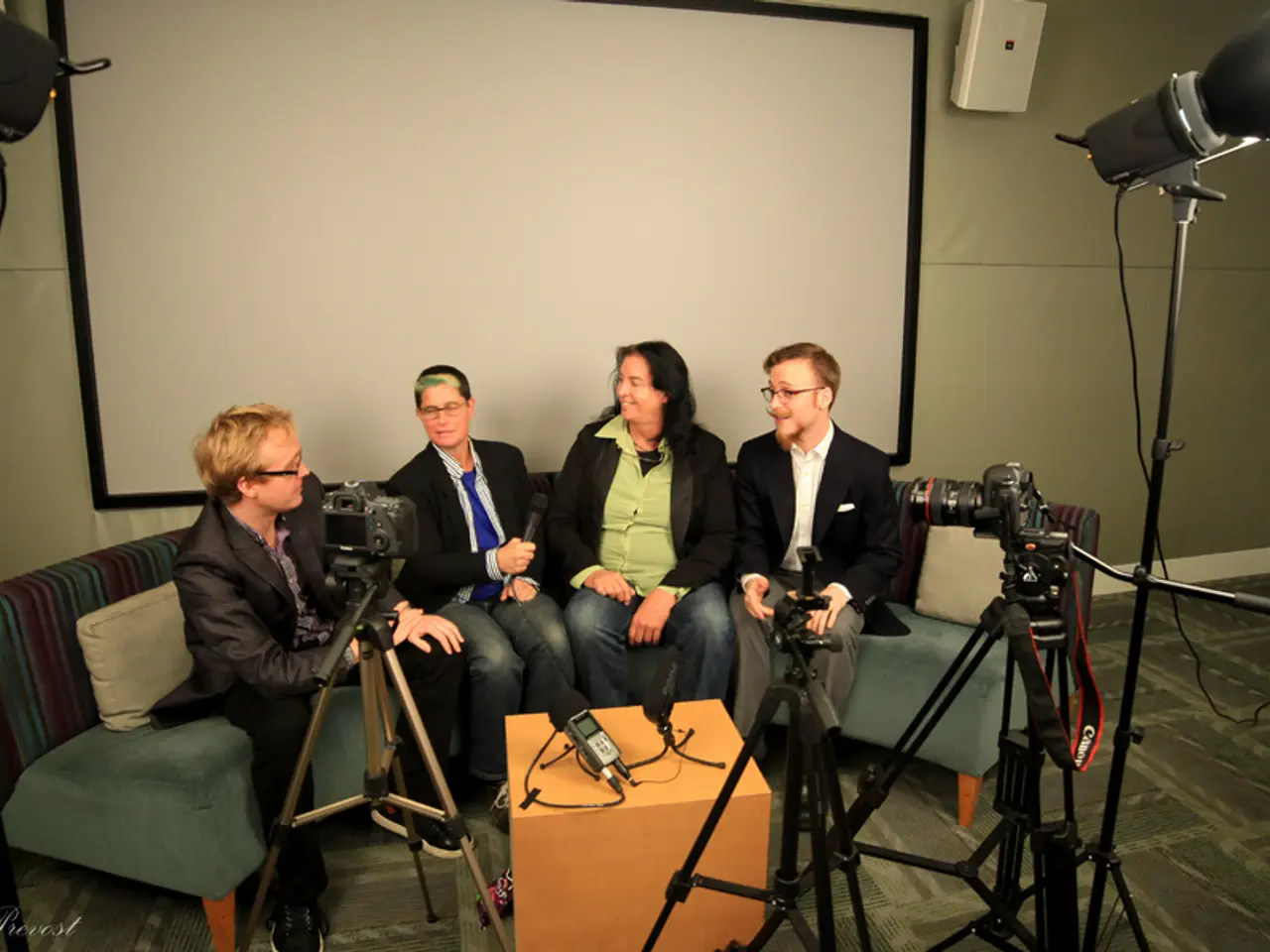Interview Analysis Breakdown
In the realm of social and health sciences research, interviews are a powerful tool for collecting rich, detailed qualitative data. This data offers a deep understanding of participants' experiences, beliefs, and perceptions, providing valuable insights into complex social phenomena.
To design effective interview questions, it's essential to construct open-ended, neutral, and clear questions that align with your research purpose and conceptual framework. Here are some key principles and steps to follow:
- Align questions with research purpose and framework: Define the importance of your study, the issues you want to clarify, and the theories or prior findings that guide you. This foundation shapes what you need to learn through interviews.
- Ask open-ended questions: Use questions that start with "how" and "why" to elicit rich, detailed responses that capture participants' perspectives in their own words, rather than yes/no or forced-choice answers.
- Use semi-structured formats: Combine a set of predetermined topics or key concepts with openness to new concepts that emerge spontaneously from participants. This balances comprehensive coverage and participant-driven responses.
- Avoid leading, loaded, or negatively framed questions: These can bias answers or confuse participants. Instead, phrase questions neutrally to encourage honest and unbiased responses.
- Be clear and concise: Questions should be easy to understand with no ambiguity, minimizing participant confusion and vague answers.
- Iterative refinement: Since qualitative research is emergent, refine questions based on preliminary interviews or pilot testing to better capture relevant concepts and improve clarity.
- Consider participant burden and ethical sensitivity: Keep interviews focused and respectful, avoiding overly intrusive or distressing questions.
A well-designed interview guide is crucial for creating a comfortable and productive interview atmosphere. It should include a series of open-ended questions that allow the participant to express their experiences and thoughts freely. The interview guide should be structured yet flexible, creating a conversational flow that encourages participants to open up while keeping the research objectives in mind.
Interviews offer a high degree of flexibility, allowing researchers to tailor questions to participants' responses during the conversation. They are particularly effective when dealing with sensitive topics, as participants may feel more comfortable discussing personal or delicate issues in a personal environment. However, it's important to remember that the lack of anonymity can pose a problem for some participants, especially when discussing sensitive topics.
In personal interviews, the formulation of questions is crucial, and poorly phrased questions can disrupt rapport and hinder data collection. One of the biggest drawbacks of interviews is the time they require, both for the researcher and the participant. Regardless of the type (structured, semi-structured, or focus group), mastering the interview process is crucial for obtaining valuable qualitative data in research.
To end an interview, a "wrap-up" question that allows the participant to share any final thoughts or address topics that may not have been covered often leads to unexpected but valuable data. This final question can provide a valuable closing to the interview, ensuring that all important topics have been discussed.
In conclusion, effective qualitative interview questions are open-ended, aligned with your research aims and conceptual framework, neutrally worded, and structured flexibly to allow participant-driven discovery while ensuring coverage of key concepts relevant to the social or health phenomena under study.
In the process of designing effective interview guides for education and self-development focused on personal growth and learning, it's important to transcribe participants' responses accurately, as these rich qualitative data provide insights into their experiences, beliefs, and perceptions, contributing to their understanding of complex social phenomena.
To obtain valuable insights during the interview process, it's crucial to include a wrap-up question in the interview guide, allowing the participant to share any final thoughts or discuss topics that may not have been covered, which can result in unexpected but valuable data, thus completing the interview on a comprehensive note.




